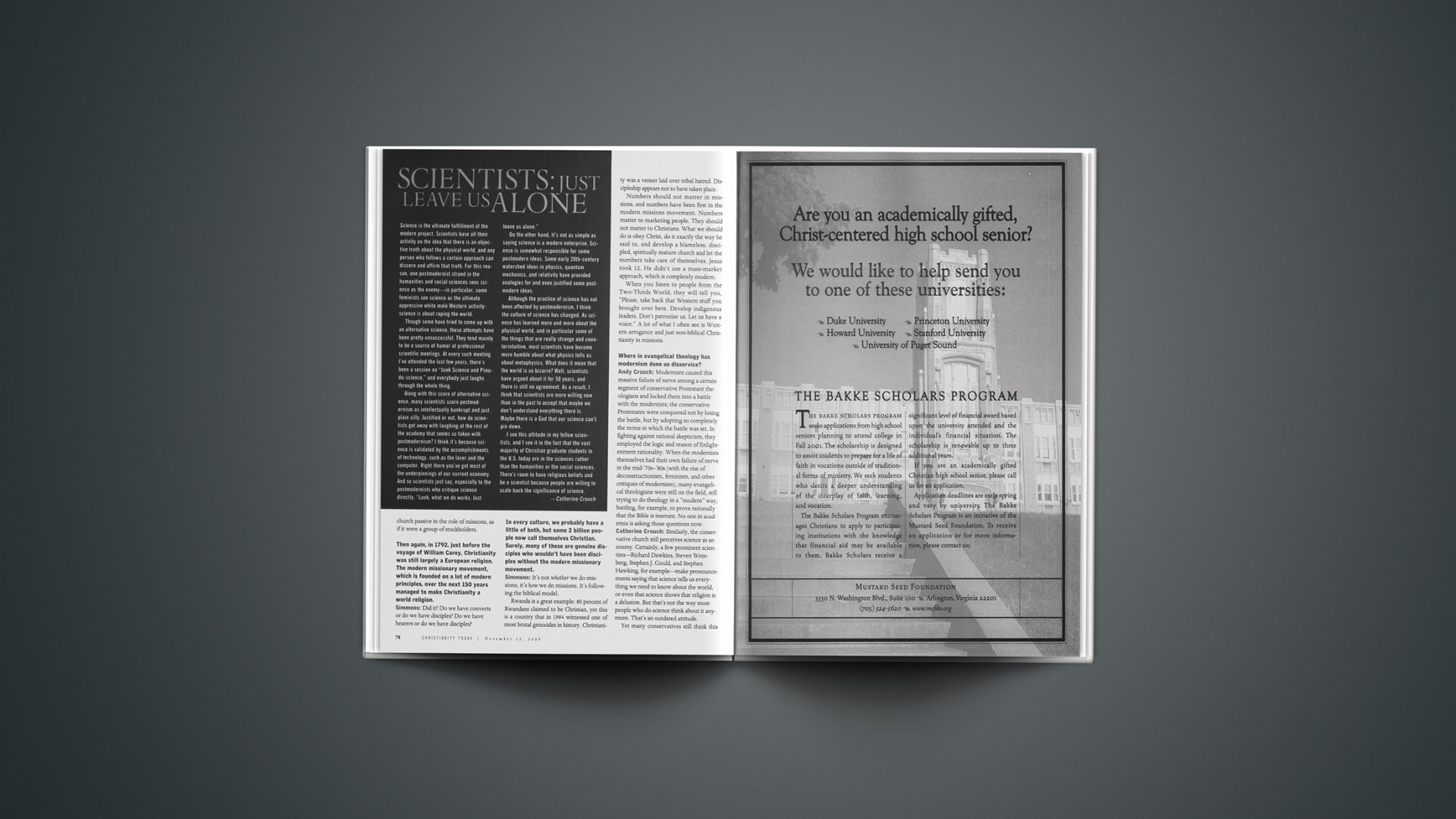Science is the ultimate fulfillment of the modern project. Scientists base all their activity on the idea that there is an objective truth about the physical world, and any person who follows a certain approach can discern and affirm that truth. For this reason, one postmodernist strand in the humanities and social sciences sees science as the enemy—in particular, some feminists see science as the ultimate oppressive white male Western activity: science is about raping the world.
Though some have tried to come up with an alternative science, these attempts have been pretty unsuccessful. They tend mainly to be a source of humor at professional scientific meetings. At every such meeting I’ve attended the last few years, there’s been a session on “Junk Science and Pseudo-science,” and everybody just laughs through the whole thing.
Along with this scorn of alternative science, many scientists scorn postmodernism as intellectually bankrupt and just plain silly. Justified or not, how do scientists get away with laughing at the rest of the academy that seems so taken with postmodernism? I think it’s because science is validated by the accomplishments of technology, such as the laser and the computer. Right there you’ve got most of the underpinnings of our current economy. And so scientists just say, especially to the postmodernists who critique science directly, “Look, what we do works. Just leave us alone.”
On the other hand, it’s not as simple as saying science is a modern enterprise. Science is somewhat responsible for some postmodern ideas. Some early 20th-century watershed ideas in physics, quantum mechanics, and relativity have provided analogies for and even justified some postmodern ideas.
Although the practice of science has not been affected by postmodernism, I think the culture of science has changed. As science has learned more and more about the physical world, and in particular some of the things that are really strange and counterintuitive, most scientists have become more humble about what physics tells us about metaphysics. What does it mean that the world is so bizarre? Well, scientists have argued about it for 50 years, and there is still no agreement. As a result, I think that scientists are more willing now than in the past to accept that maybe we don’t understand everything there is. Maybe there is a God that our science can’t pin down.
I see this attitude in my fellow scientists, and I see it in the fact that the vast majority of Christian graduate students in the U.S. today are in the sciences rather than the humanities or the social sciences. There’s room to have religious beliefs and be a scientist because people are willing to scale back the significance of science.
Related Elsewhere
This article is a sidebar to the story, “The Anti-Moderns | Six postmodern Christians discuss the possibilities and limits of postmodernism.” See our other related stories in this package, “What is Postmodernism? | The often-maligned movement is today’s academic Rorschach blot” and “Urbanites: More Justice, Less Epistemology | The emerging urban class is targeting capitalism and Christianity—often for good reason.”
Catherine Crouch is a postdoctoral fellow in physics at Harvard. Check out her web page and the Galileo project on physics education. She also presented two talks on science and Christian faith at InterVarsity’s Urbana 96 convention: “Issues for Christians in the Sciences” and “Opportunities for Witness and Service as a Scientist.”
Copyright © 2000 Christianity Today. Click for reprint information.










